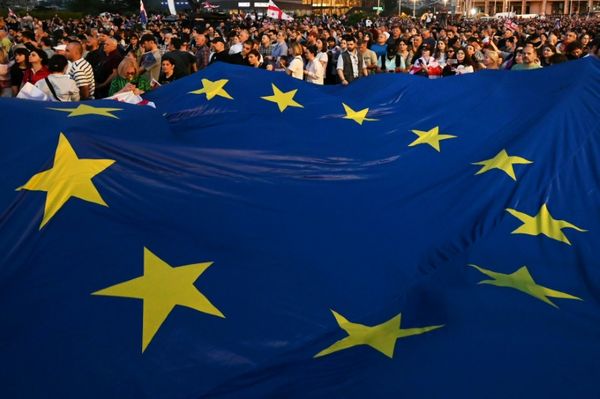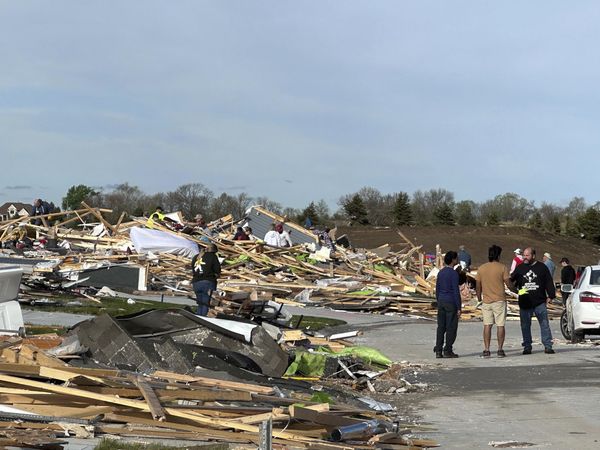
On June 4, the 34th anniversary of the Tiananmen Square massacre, police in Hong Kong detained activists and journalists under the city’s harsh 2020 national security law (NSL). It was the latest move by authorities in the four-year crackdown on political and press freedom, heightening concerns about the future of the city’s once independent legal system, and follows last month’s ban on foreign lawyers in national security cases.
Until 2019, Hong Kong was the last place in China where such commemorations could be held. Until then there had been a rich history of tens of thousands of people holding candlelight vigils in Victoria Park and Causeway Bay on Hong Kong Island. This year 6000 police patrolled both sites.
In March three members of the now disbanded Hong Kong Alliance in Support of Patriotic Democratic Movements in China which had formerly organised the annual vigils were sentenced to four-and-a-half months’ jail. So far four people have been arrested for “seditious intention and disorderly conduct” and face up to two years in prison and other possible charges including “inciting subversion”.
The crackdowns on these peaceful vigils have been a stark illustration of the accelerating erosion of freedoms in the special administrative region in the past decade since Xi Jinping came to power in 2012. Beijing enacted the NSL after pro-democracy/anti-China protests roiled the city for almost six months. Chinese and Hong Kong officials claim the law was needed to restore stability. The coincidence of the COVID-19 pandemic gave Hong Kong officials and their Chinese masters an excuse to block the 2020 Tiananmen commemoration ahead of the NSL’s introduction, and also institute harsh lockdowns.
But human rights groups as well as many Western politicians and governments have slammed the law as one designed to crush dissent. It criminalises secession in an effort to block a small but rising independence movement. It also criminalises subversion — undermining the power or authority of the central government — and terrorism, using violence or intimidation against people (which can be widely applied and twisted by prosecutors), and “collusion” with foreign or external forces. All these offences have a maximum punishment of life imprisonment.
“The national security law has been applied broadly to arrest or pressure pro-democracy figures, opposition groups, the media, trade unions and civil society,” Foreign Affairs Minister Penny Wong said last June. “The electoral reforms imposed by Beijing in 2021 have further eroded Hong Kong’s democratic governance.”
The NSL allows selected cases to be sent to the mainland to be dealt with under China’s ultra-harsh legal system with a conviction rate of more than 99%. It allows Hong Kong’s Beijing-appointed chief executive to appoint judges to hear national security cases. Yet under the 1997 Basic Law, which has acted as Hong Kong’s constitution since it was handed back to China, the judiciary should be independent. The NSL also gives Beijing rather than a Hong Kong judicial or policy body the power to interpret the law.
There was something of an interregnum during the pandemic as Hong Kong experienced various lockdowns — although not as harsh as the mainland — as well as quarantine for visitors, but since China opened up at the end of last year the full extent of the NSL has become increasingly apparent.
On May 10, Hong Kong’s handpicked Legislative Council amended the Legal Practitioners Ordinance (LPO) enabling authorities to stop offshore lawyers participating in national security cases.
It’s the latest restriction on the rights of defendants under the NSL that local lawyers say was due to the prosecution of Jimmy Lai, 75, former owner of the independent and now defunct Apple Daily newspaper and a democracy activist. It is widely seen that Lai, who wanted to hire a UK barrister, is being used as a high-profile warning by Beijing to others.
Lai’s case underscores the war on the media by Hong Kong authorities. The city is now ranked 140th out of 180 countries in Reporters Without Borders (RSF) 2023 World Press Freedom Index, a dramatic fall from 58th place 10 years ago.
“Once a bastion of press freedom, the Hong Kong special administrative region of the People’s Republic of China has seen an unprecedented setback since 2020 when Beijing adopted a national security law aimed at silencing independent voices,” RSF said. After the new regulation, more than 100 editors and publishers globally signed a letter organised by RSF in support of Lai.
The Economist’s intelligence unit ranked Hong Kong 88th in its 2022 democracy index with an overall score of 5.28 out of 10, and a rating of 3.29 for government and 2.75 for electoral process. This is way below its 2015 peak of 6.5. “These setbacks come on top of the erosion of media and academic freedoms that has occurred in recent years,” the unit said.
The erosion of freedoms and harsher security has seen a mass exodus of expats and locals. More than 200,000 people left between 2020 and earlier this year. Only a few years ago Hong Kong was home to 100,000 Australians, one of the biggest expat communities from here, but although no recent data is available, anecdotal evidence suggests thousands have left, underscoring a somewhat bleak outlook for the once free-wheeling city.







